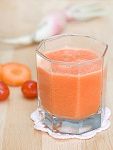Eating And Exercising

While there are some advantages to working out on an empty stomach, such as the ability to burn more calories, this approach has been treated with extreme caution. Any existing illnesses, such as diabetes, low blood pressure problems or high and low blood sugar levels can be exacerbated by not fuelling properly before training, so if you are considering exercising on an empty stomach be sure to consult your doctor before doing so.
Experts recommend that if you do exercise before eating, it should be early in the morning when your body still has some reserves from your evening meal the night before, and it should not exceed 30 minutes. The danger is that without enough food to fuel more than 30 minutes of basic aerobic exercise, such as jogging or running, the body naturally begins to use muscle as an energy source instead.
Among other complications, this can lead to dehydration and dizziness. At the other end of the scale, it is important not to overeat before exercise. During light exercise, the body is able to continue digesting food, but with more intense activity the blood supply to the stomach is reduced as it tries to feed the muscles being worked out. Carbohydrates are the key, easily digestable, they keep the blood sugar at a continuous level. Sandwiches (using healthy whole wheat bread), raisins, bananas and cereal bars are all excellent sources of energy for exercise, as they are packed full of energy-giving carbohydrates.
What Type Of Food You Require:
To make the most of your workout, concentrate on the foods that you should eat:

- Carbohydrates: Your body’s chief source of fuel is carbohydrates. You will feel better if your food is rich in carbohydrates and low in fats. Your muscles uses stored glycogen when it needs energy and the body stores carbohydrates as glycogen, in the liver and muscles. A diet containing at least 50 percent of calories from carbohydrates allows your body to store glycogen. Before a big athletic event, you will want to consume high dosages of carbohydrates regularly.
- Fiber and fructose: High fiber foods, such as lentil and beans, bran cereals and fruits, can cause gas and cramping. Do not have these right before a work out. Fructose, which is sweet, can cause diarrhea after an intense work out.
- Beverage sources: If you are not keen on having solid food, then you can compensate with sports drink or fruit juices which has carbohydrate content. Do which suits you the best.
- Proteins and fats: For muscles growth and repair, protein plays a very vital part although it is not your source of fuel. Most people get protein from their food source and don’t need additional protein supplements. Good protein sources are eggs, meat and nuts. Fat too is important to provide fuel for your muscle while exercising. Get fat from unsaturated sources such as nuts, vegetable oil and fatty fish. Avoid eating fatty food before exercise as it remains in your stomach.
- Water: Drink plenty of water for hydration. Your body uses the water in your blood to carry nutrients such as sugar or glucose to cells and to remove waste products from the cells. If you don’t replace the fluid you lose during exercise, your heart rate increases and your temperature rises, putting you at risk of dehydration as well as compromising your workout.